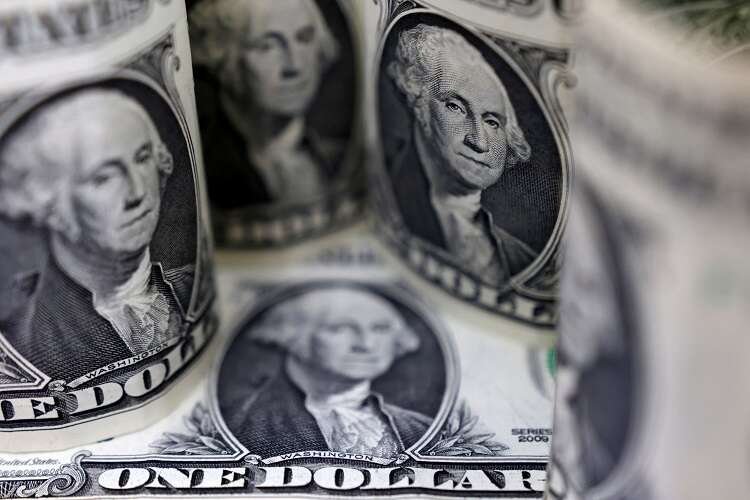Dollar rides high on flagging euro and yuan


SINGAPORE (Reuters) -The dollar was buoyant on Tuesday as political turmoil in France undermined the euro, while tariff risks and weakness in China’s economy pushed the yuan to a 13-month low.
SINGAPORE (Reuters) -The dollar was buoyant on Tuesday as political turmoil in France undermined the euro, while tariff risks and weakness in China’s economy pushed the yuan to a 13-month low.
The resurgent yen retreated slightly but remains near six-week peaks on the dollar, as traders are growing in confidence that Japan may hike rates later in December.
The euro, which had been the weakest G10 currency through November, began this month with a 0.7% fall on Monday and hovered at $1.0487 in the Asia session, as France’s government heads for collapse over a budget impasse. [EUR/GVD]
Improving U.S. manufacturing data and a dive in Chinese bond yields to record lows has pulled the yuan below chart support, sending it shooting towards 7.3 per dollar and opening the way to another bout of broad dollar strength. [CNY/]
“It’s much easier for USD/G10 to go up when USD/CNH isn’t stuck in the mud,” said Brent Donnelly, trader and president of analytics firm Spectra Markets.
China fixed the yuan’s trading band at its weakest in more than a year and traders ran with it to sell the currency at 7.2996 per dollar. It traded at 7.24 on Friday. [CNY/]
The Australian dollar dropped 0.7% on Monday and was marginally down at $0.6472. Economic data was mixed, with a a bigger-than-forecast current account deficit countered by a jump in government spending that is likely to boost growth. The New Zealand dollar inched 0.2% lower to $0.5876.
The yen, the only G10 currency to gain on the dollar last month, touched its strongest since late October on Monday at 149.09 to the dollar and was last at 150.15.
Market pricing implies a near 60% chance of a 25 basis point rate hike in Japan later in December.
Markets are waiting on U.S. employment data on Friday to finesse bets on whether the Federal Reserve will cut rates later in the month – currently priced as an even chance.
Job openings figures are due later on Tuesday.
The dollar typically suffers seasonal weakness in December as companies tend to buy foreign currencies. However, traders are keeping a wary eye this year on President-elect Donald Trump’s incoming administration and are keeping the dollar firm.
Over the weekend, Trump threatened punitive tariffs unless BRICS member countries committed to the dollar as a reserve currency.
“The remarks strengthen the view that Trump may not look to weaken the USD during his presidential term and will instead be relying on tariffs to tackle the U.S.’s large goods trade imbalance,” Rabobank strategist Jane Foley said in a note.
“We maintain the view that EUR/USD could drop to parity around the middle of next year. The timing may coincide with the introduction of new tariffs by Trump.”
(Reporting by Tom Westbrook; Editing by Jacqueline Wong and Nicholas Yong)
The dollar is the official currency of the United States and is widely used as a global reserve currency, influencing international trade and finance.
The euro is the official currency of the Eurozone, used by 19 of the 27 European Union member states, facilitating easier trade and economic stability among its members.
The yuan, also known as the renminbi, is the official currency of China, used in domestic and international transactions, and is increasingly becoming a global currency.
Currency hedging is a financial strategy used to protect against fluctuations in exchange rates, helping businesses and investors minimize potential losses.
Explore more articles in the Investing category











